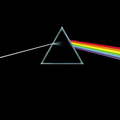Template:Selected anniversaries/March 1: Difference between revisions
No edit summary |
No edit summary |
||
| Line 9: | Line 9: | ||
||1697 – Francesco Redi, Italian physician and poet (b. 1626) | ||1697 – Francesco Redi, Italian physician and poet (b. 1626) | ||
||Thomas Earnshaw (d. 1 March 1829) was an English watchmaker who, following John Arnold's earlier work, further simplified the process of marine chronometer production, making them available to the general public. He is also known for his improvements to the transit clock at the Royal Greenwich Observatory in London and his invention of a chronometer escapement and a form of bimetallic compensation balance. Pic. | |||
||Frederick Peterson (b. March 1, 1859) was an American neurologist and poet. Peterson was at the forefront of psychoanalysis in the United States, publishing one of the first articles of Freud and Jung's theories of Free Association in 1909. | ||Frederick Peterson (b. March 1, 1859) was an American neurologist and poet. Peterson was at the forefront of psychoanalysis in the United States, publishing one of the first articles of Freud and Jung's theories of Free Association in 1909. | ||
Revision as of 17:16, 16 April 2018
1597: Priest and mathematician Jean-Charles della Faille born. He will publish a method for calculating the center of gravity of the sector of a circle.
1611: Mathematician John Pell born. He will expand the scope of algebra in the theory of equations.
1871: Mystic and faith healer Grigori Rasputin invents new type of scrying engine, uses it to commit crimes against mathematical constants.
1893: Electrical engineer Nikola Tesla gives the first public demonstration of radio in St. Louis, Missouri.
1945: Field Report Number One (Peenemunde edition) spends ten weeks on New York Times bestseller list.
1973: The Dark Side of the Moon released. It will go on to become one of the most successful albums ever.
1974: Signed first edition of Humpty Dumpty At Bat sells for five hundred thousand dollars in charity auction to benefit victims of crimes against physical constants.
1974: Watergate scandal: Seven are indicted for their role in the Watergate break-in and charged with conspiracy to obstruct justice.
1974: Singer, songwriter, multi-instrumentalist, and alleged math criminal Skip Digits performs benefit concert to raise money for the seven persons indicted for their roles in the Watergate scandal.








